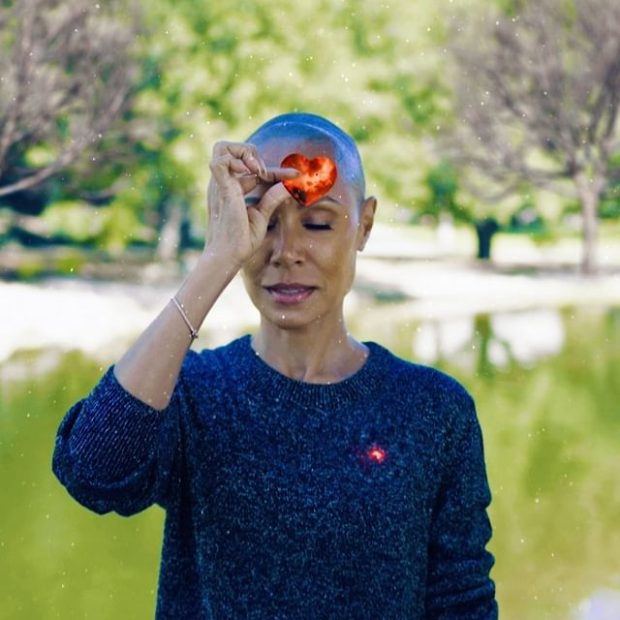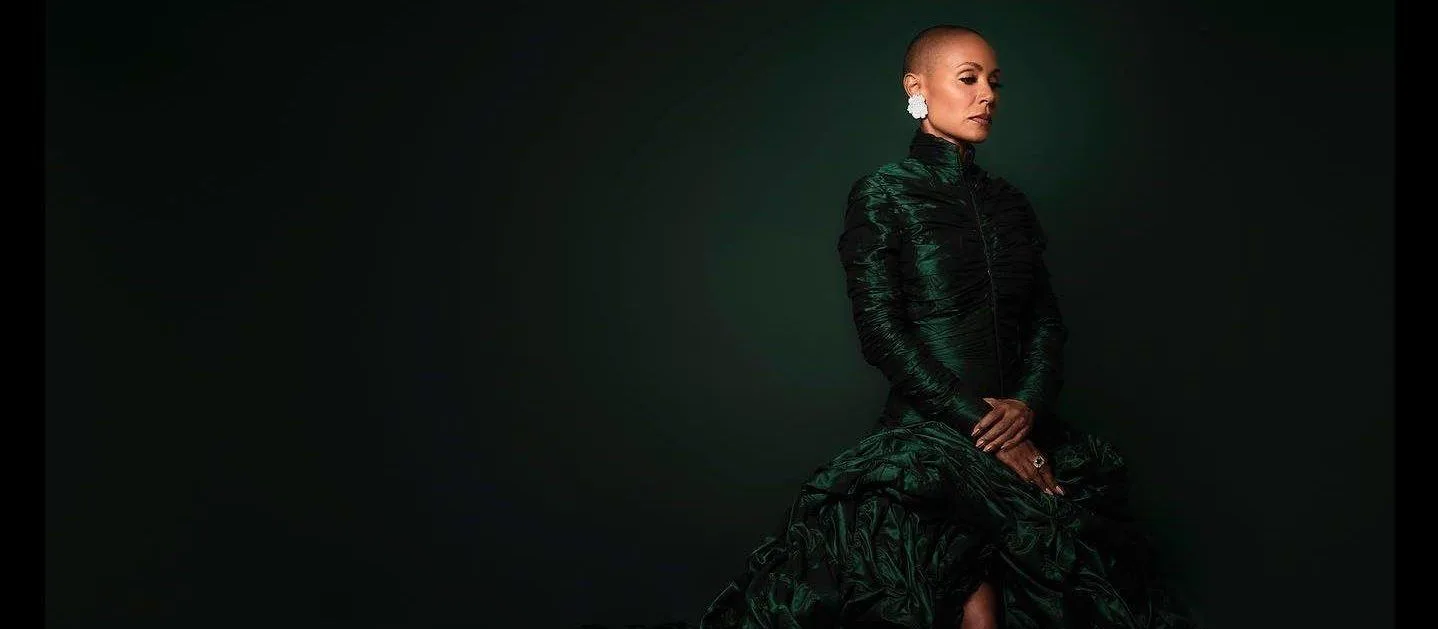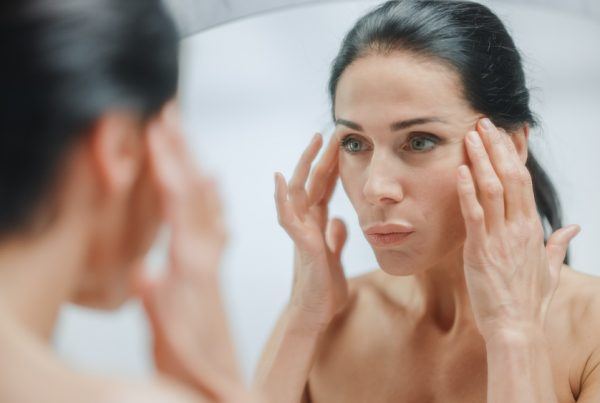In July 2021, Jada Pinkett Smith made waves when she debuted her new shaved look. Now, while some may have seen this as the actress embracing a new style, the reality was a little more serious. Speaking on her Facebook Watch Show in 2018, the actress opened up about her journey with an autoimmune disorder alopecia (a condition that attacks the hair follicles resulting in bald spots and hair loss), for the first time,
“I was in the shower one day and had just handfuls of hair in my hands and I was just like, ‘Oh my god, am I going bald?’ ”
“It was one of those times in my life where I was literally shaking in fear. That’s why I cut my hair, and why I continue to cut it.” – Jada Pinkett Smith, 2018
Jada Pinkett Smith’s Journey With Her Hair Loss
The actress added that doctors had been unable to find the root cause, even after she took “every test there is to have.” She said some believe it to be stressful, whereas others think it’s a natural part of the aging process. Regardless, Pinkett added that taking care of her hair has been a beautiful ritual, as is having the choice to have hair or not.
Since revealing her alopecia diagnosis, the Set it Off actress has continued to be open about her condition. In a previous Instagram post, the mother-of-two shared how she has included turbans in her hair-care rituals, saying that “When my hair is wrapped, I feel like a queen,” she said. In the video, she shows her three favorite ways to wrap a turban, all with a smile on her face.
Additionally, on her Instagram page, the actress posted a clip where she revealed the appearance of a hairless line on her closely-shaven scalp. Now, while the notion of balding is sure to shake a person, Pinkett is definitely keeping a positive perspective, joking that she plans to decorate the line with some rhinestones. “Might as well make me a little crown,” Pinkett Smith quipped. “That’s what mama’s gonna do.”
View this post on Instagram
Jada Pinkett Smith adopting a healthy perspective when it comes to her hair loss isn’t just admirable to see, but the fact that a world-renowned female celebrity is being so open and honest about such a real-life experience is incredibly affirming for a lot of people, most notably women, who may not feel as comfortable. What’s more, Pinkett’s vulnerability and honesty about her hair-loss experience help to enforce the importance of having open conversations about hair loss.
So, what is alopecia?
Alopecia is the medical term for hair loss, and according to statistics, over 147 million people are suffering from alopecia worldwide and more than 50 percent of males and females suffer from male pattern baldness and female pattern baldness at some point in their lives (1).
What are the different types?
There are three main types of alopecia: alopecia areata, alopecia totalis, and alopecia universalis.
Alopecia areata
It’s the same type of alopecia that Jada Pinkett Smith deals with. Alopecia areata occurs when the immune system attacks the hair follicles, causing hair loss. The condition causes hair to fall out in small round patches. However, there are instances where hair loss is more extensive.
Alopecia totalis
This type of hair loss is much more extreme than alopecia areata as it also causes complete baldness. It also causes hair loss in your eyelashes and eyebrows. Alopecia totalis often begin as alopecia areata before rapidly developing into alopecia totalis.

jadapinkettsmith/instagram
Alopecia Universalis
This is the most severe form of alopecia areata as it refers to hair loss all over the body. This includes your scalp, pubic area, inside your nose, eyelashes, and eyebrows.
What causes it?
According to the Cleveland Clinic, alopecia can be triggered by one’s genetic makeup, as one in five people with the disease has a family member who has also developed alopecia areata.
Additionally, some do believe that environmental factors, such as stress, could also trigger alopecia.
Is it curable?
Unfortunately, alopecia cannot be cured, but it can be managed.
For instance, in 2018, Jada Pinkett Smith revealed that she was managing her hair loss with steroid injections, adding that the injections seemed to be helping.
Other treatments that can help manage alopecia include oral immunosuppressants, topical agents like minoxidil, as well as light therapy.
Living with alopecia
Hair loss can be emotionally draining, causing you to become isolated or depressed. However, if you do feel like this, there are plenty of resources available. These resources provide hair accessories and products that can help you better adjust to your hair loss.
Remember that you are not the only person in the world grappling with hair loss. Also, you are not your hair and that, like Jada Pinkett Smith, you can overcome this.
MAIN PICTURE: jadapinkettsmith/instagram
References
1. https://economictimes.indiatimes.com/industry/healthcare/biotech/healthcare/the-latest-best-hair-loss-treatments-for-men-women-in-2021/articleshow/82730082.cms
2. https://my.clevelandclinic.org/health/diseases/12423-alopecia-areata





![women [longevity live]](https://longevitylive.com/wp-content/uploads/2020/01/photo-of-women-walking-down-the-street-1116984-100x100.jpg)









